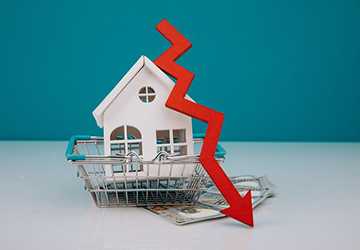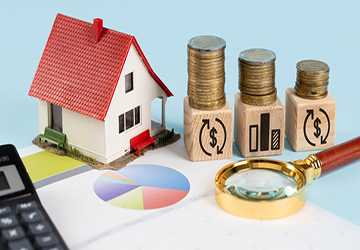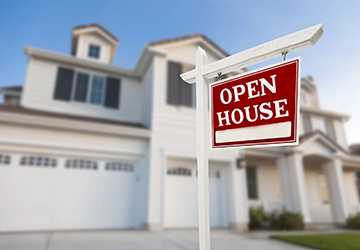Your home is likely one of your most significant assets and preserving or enhancing its value is crucial for your financial stability. However, numerous factors can sway the value of your property, and some of these can have a detrimental effect. In this article, we delve into the top 10 factors that have the potential to devalue your property. By understanding these factors, you can take proactive measures to safeguard the value of your home. This knowledge can also guide you in making informed decisions regarding property investments, ensuring you are well-equipped to navigate the complexities of the real estate market.

Factors That Can Devalue Your Property
Your home is not just a place to live; it's also an asset that requires careful attention to maintain or increase its worth. In the ever-changing world of real estate, various factors can influence the value of your property, and some of them can lead to its devaluation. From the curb appeal to economic conditions and even the layout of your home, understanding the top 10 factors that can devalue your property is essential for homeowners and investors alike. This article will delve into these factors, providing valuable insights to help you protect and enhance the value of your most significant investment.
Poor Curb Appeal
First impressions indeed hold significant weight, especially in the realm of real estate. The exterior appearance of your home plays a pivotal role in shaping its value. A property that sports a neglected or unappealing facade can deter potential buyers, thereby diminishing its value. However, simple enhancements such as landscaping, applying a fresh coat of paint, and ensuring the exteriors are well-maintained can significantly elevate your property's curb appeal.
Lack of Maintenance
Regular maintenance is crucial to preserving your property's value. Neglecting essential repairs and upkeep can lead to more significant problems down the road, which can be costly to fix. Leaky roofs, plumbing problems, or cracked foundations can significantly devalue your property. It's essential to address maintenance issues promptly to prevent them from escalating and negatively impacting your home's value.
Outdated or Poorly Designed Interiors
Indeed, the interior of your home is just as crucial in determining its value. Outdated fixtures, appliances, and finishes can detract from your property's appeal to potential buyers. Moreover, a well-designed interior layout or cramped spaces can positively impact your home's value. You can enhance your property's marketability by investing in interior upgrades, such as a modern kitchen, updated bathrooms, and an open floor plan. These improvements can significantly increase your property's value by making it more attractive and functional.
Location
Location is a critical factor that can significantly affect property values. Homes in desirable neighborhoods with good schools, low crime rates, and proximity to amenities tend to have higher values. On the other hand, properties in less desirable areas or those near noisy highways or industrial zones may have lower values. While you can't change your home's location, knowing how it affects your property's value when buying or selling real estate is essential.
Economic Factors
Economic conditions can have a significant impact on property values. Factors such as job growth, income levels, and the overall state of the economy can influence the demand for housing in a particular area. During economic downturns, property values may decrease due to reduced demand. It's essential to stay informed about local economic trends and how they might affect your property's value.
Environmental Hazards
Properties in areas prone to environmental hazards, such as flooding, wildfires, or earthquakes, can decrease their values significantly. Buyers are often hesitant to invest in properties with a history of natural disasters or those in high-risk areas. Investing in appropriate insurance and taking measures to protect your home from potential environmental hazards is crucial to mitigate this factor.

Property Size and Layout
The size and layout of your property can also impact its value. Smaller homes with limited square footage may have lower values than larger ones with more spacious layouts. A poorly designed layout that lacks functionality can also reduce a property's value. While you can't always change the size of your home, you can make strategic renovations to maximize its potential and enhance its value.
Zoning and Legal Issues
Zoning regulations and legal matters significantly influence property values. Alterations in zoning laws that limit the use of a property or unresolved legal disputes associated with the property can decrease its value. Therefore, it's crucial to be well-informed about the zoning regulations applicable in your area. Additionally, promptly addressing any legal issues related to your property can help safeguard its value.
Market Trends
The real estate market is dynamic and can fluctuate over time. Market trends, such as supply and demand, interest rates, and housing inventory, can affect property values. Property values tend to rise in a seller's market, while in a buyer's market, they may stagnate or decrease. Staying informed about the current market conditions in your area can help you make informed decisions about buying or selling property.
Neighborhood Changes
The character of your neighborhood is not static; it can transform over time. These transformations can have a direct effect on the value of your property. Factors such as gentrification, the introduction of new developments, or a decline in neighborhood conditions can all play a role in influencing property values. While you may not have control over some of these changes, it's crucial to stay updated about the trends in your neighborhood and understand how they could affect your home's value.
Conclusion:
A multitude of factors shape the value of your property. Some are within your power to change, while others are not. By understanding the top 10 elements that can diminish your property's value, you can take active measures to shield your investment. Regular maintenance and upgrades and staying updated about your neighborhood and local market conditions are vital in preserving or enhancing your property's value over time. It's crucial to remember that your home is more than just a dwelling place; it's a significant financial asset that warrants meticulous attention and care.





